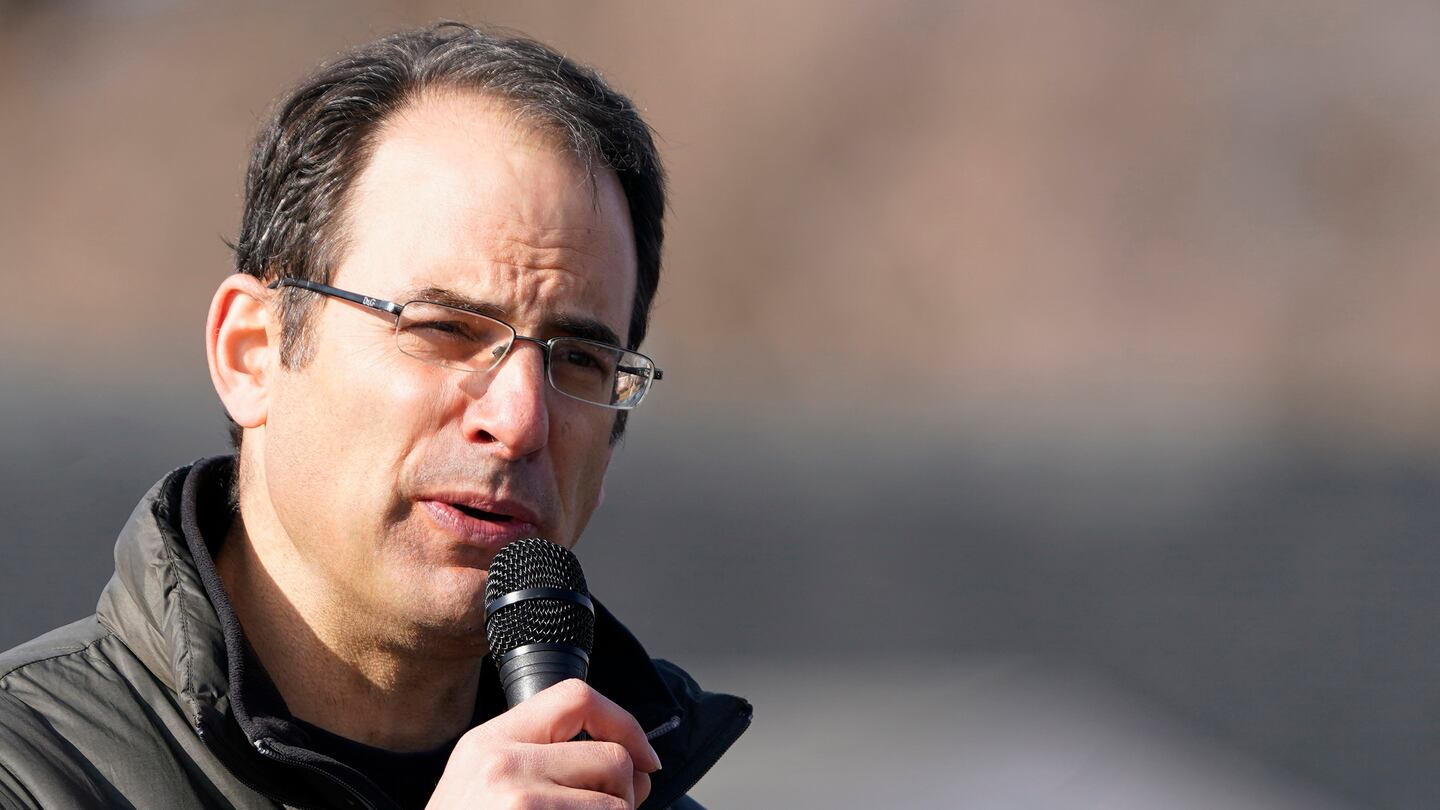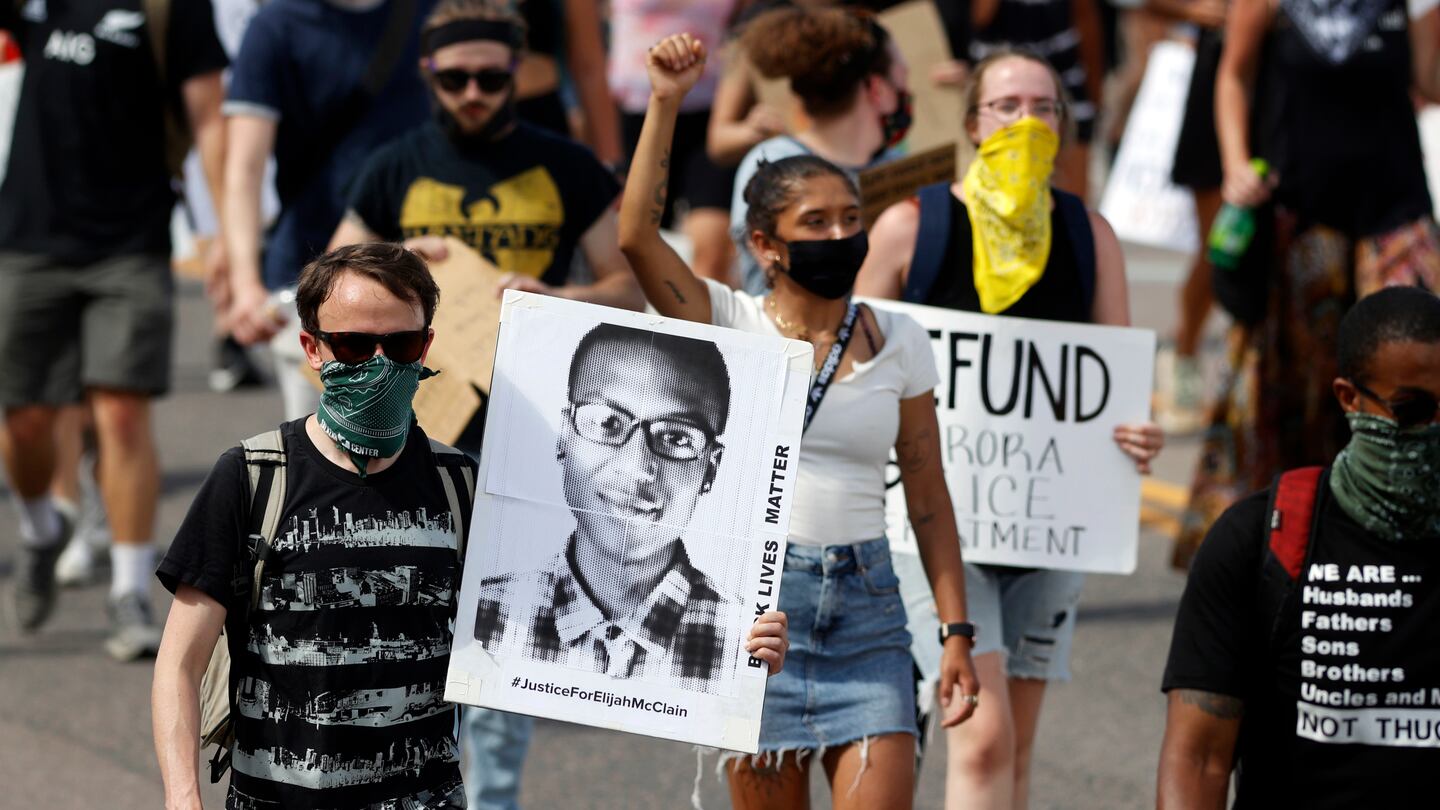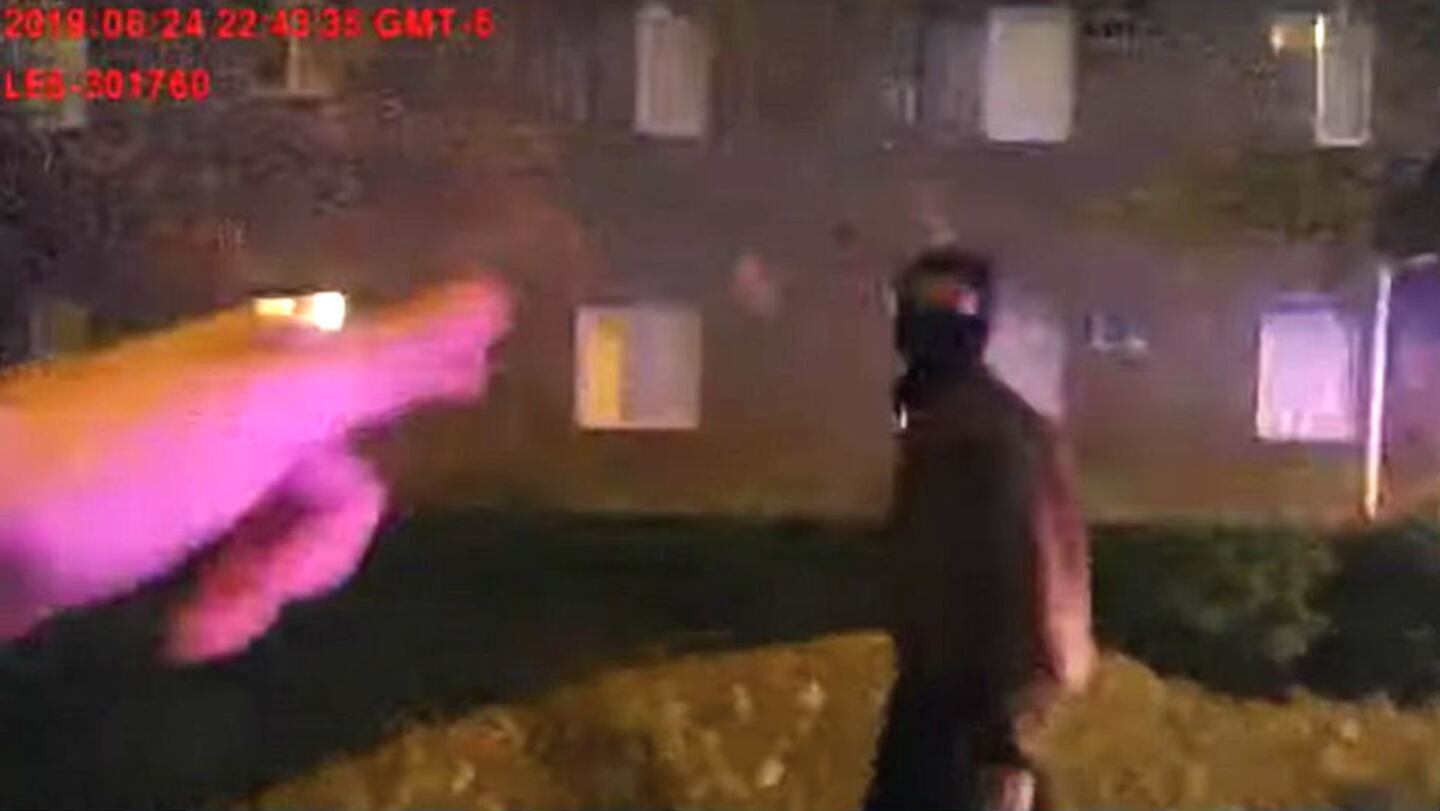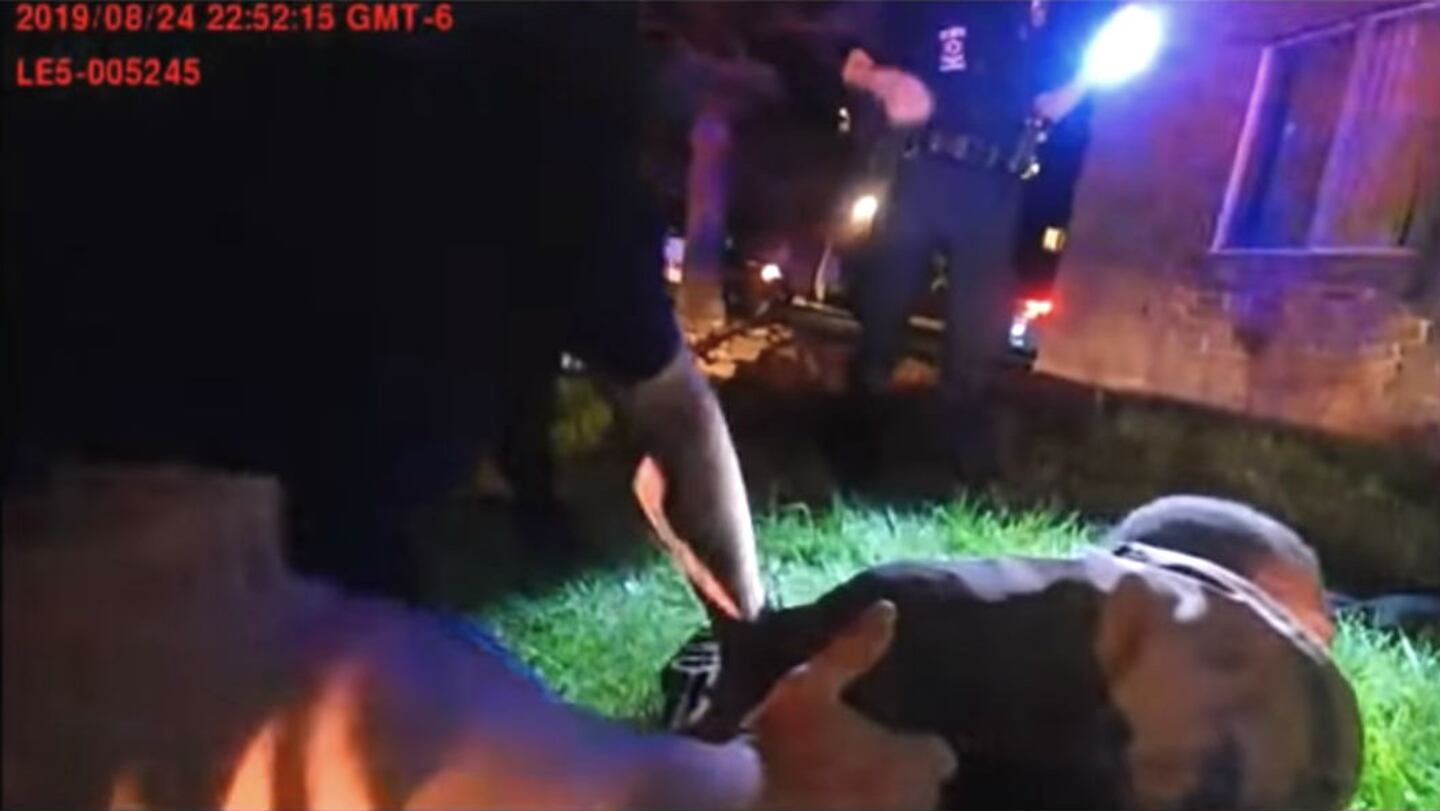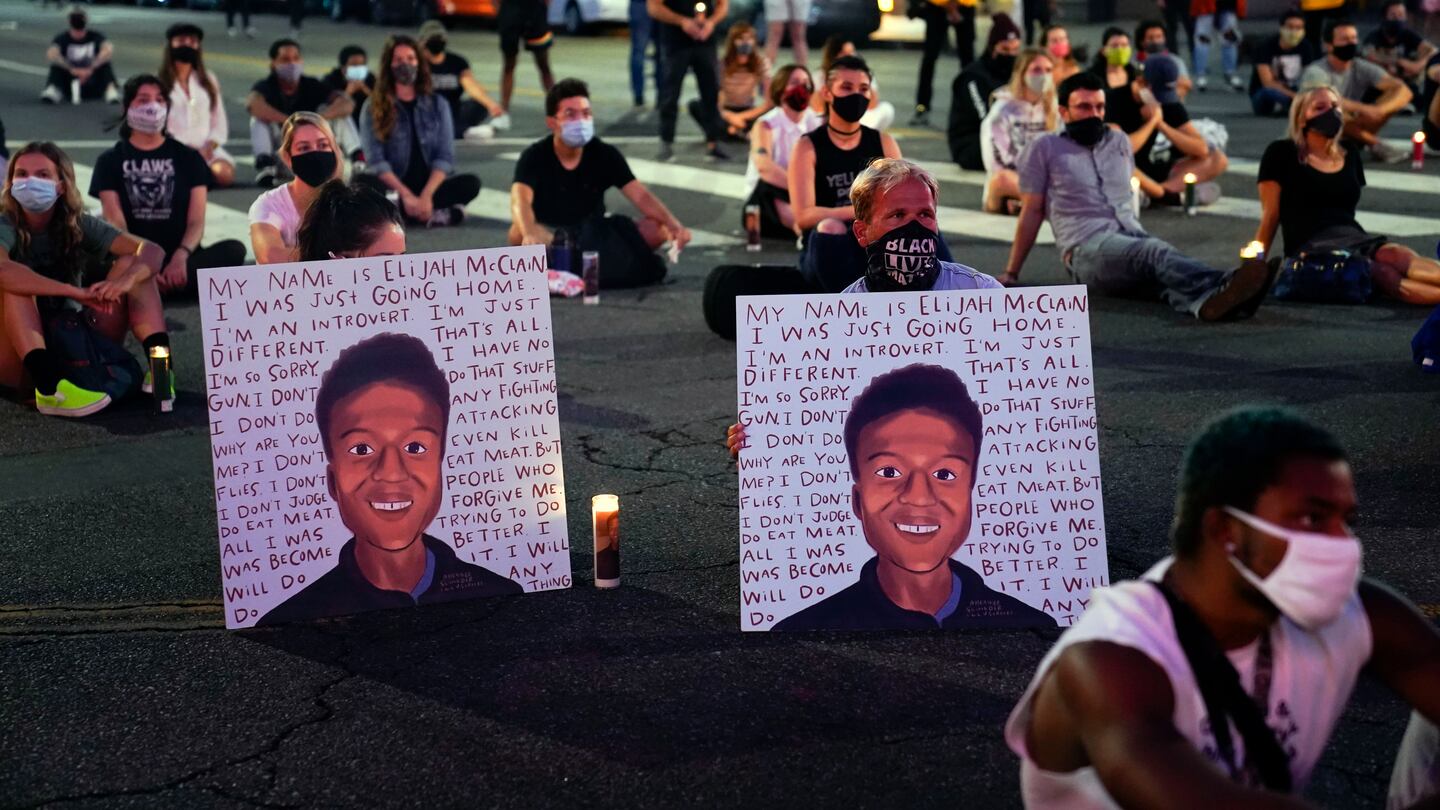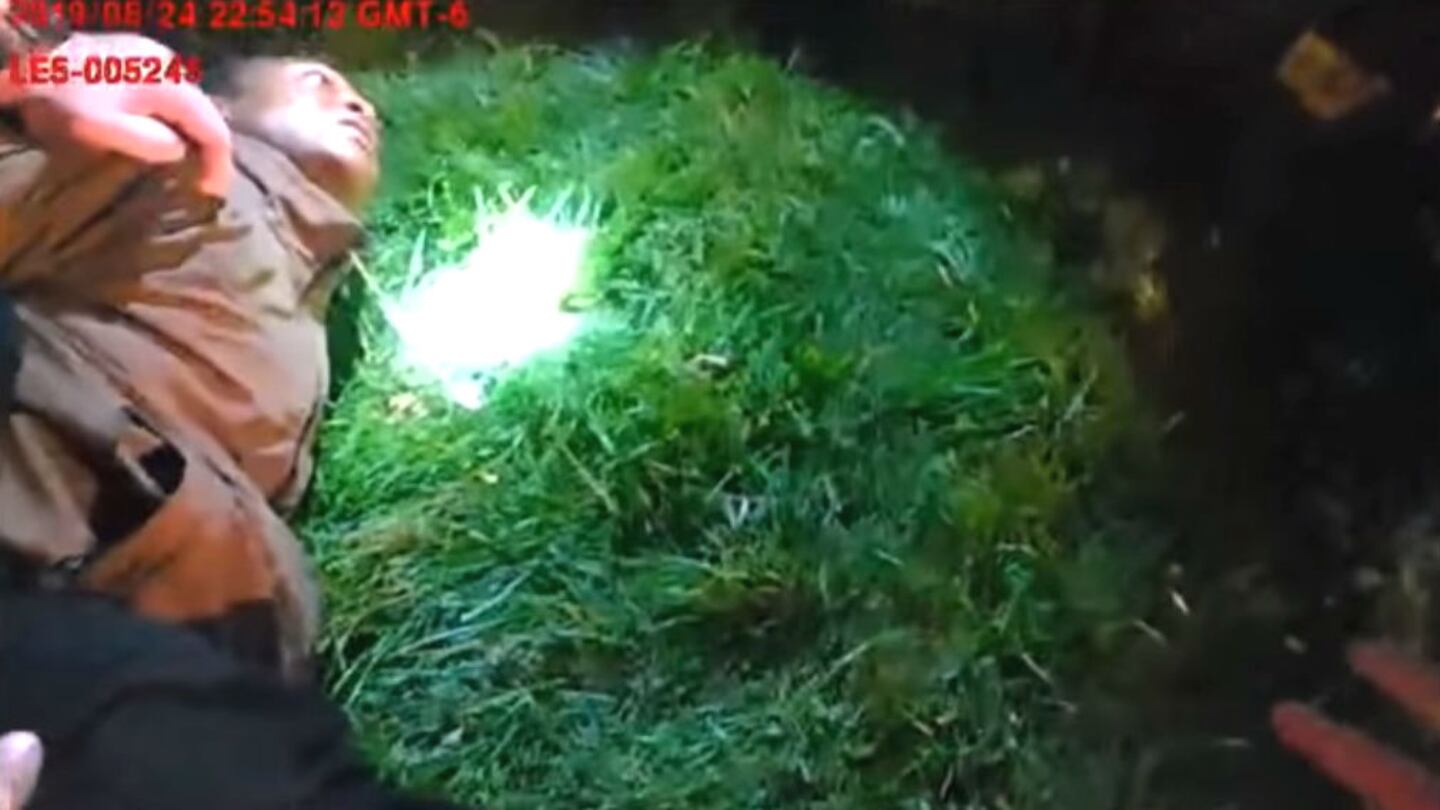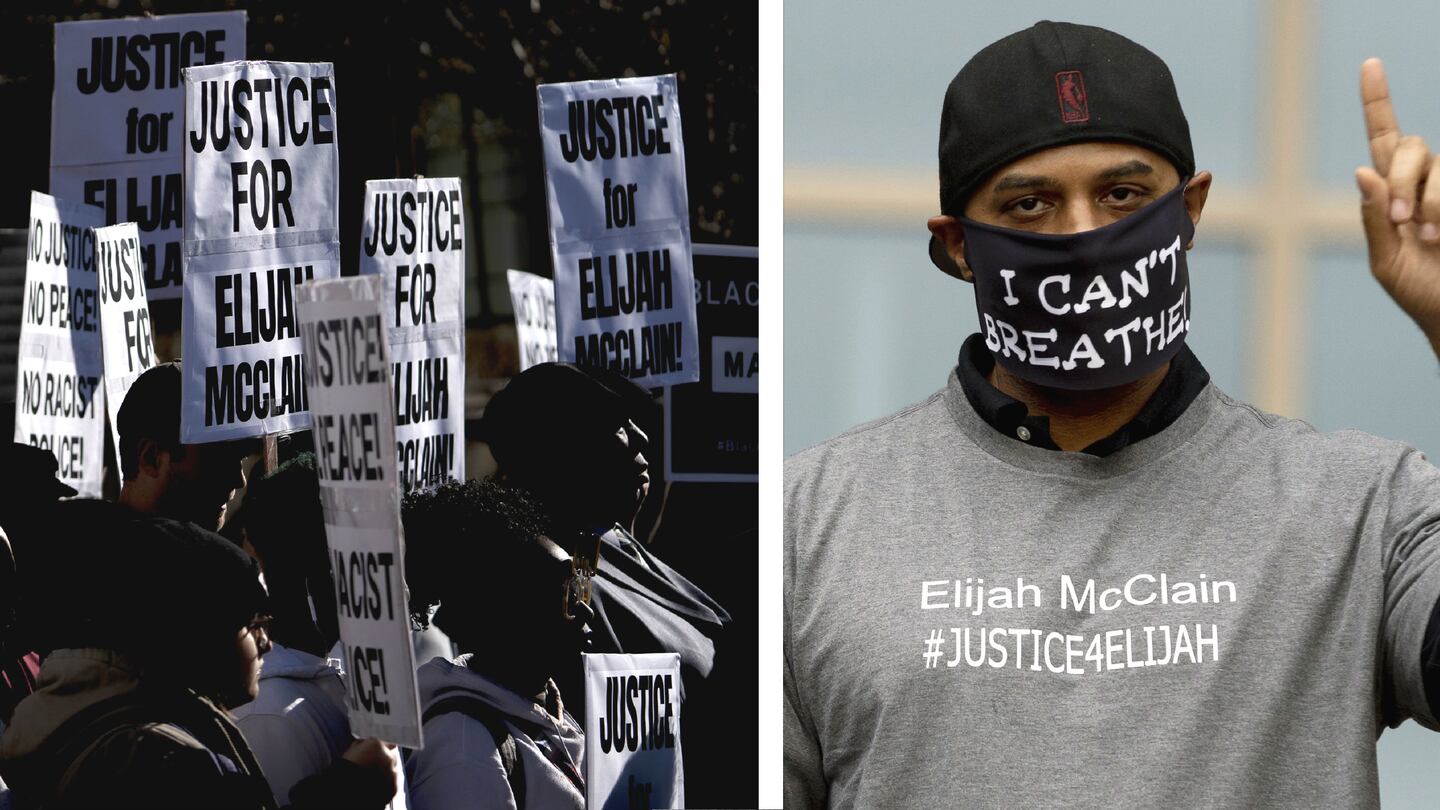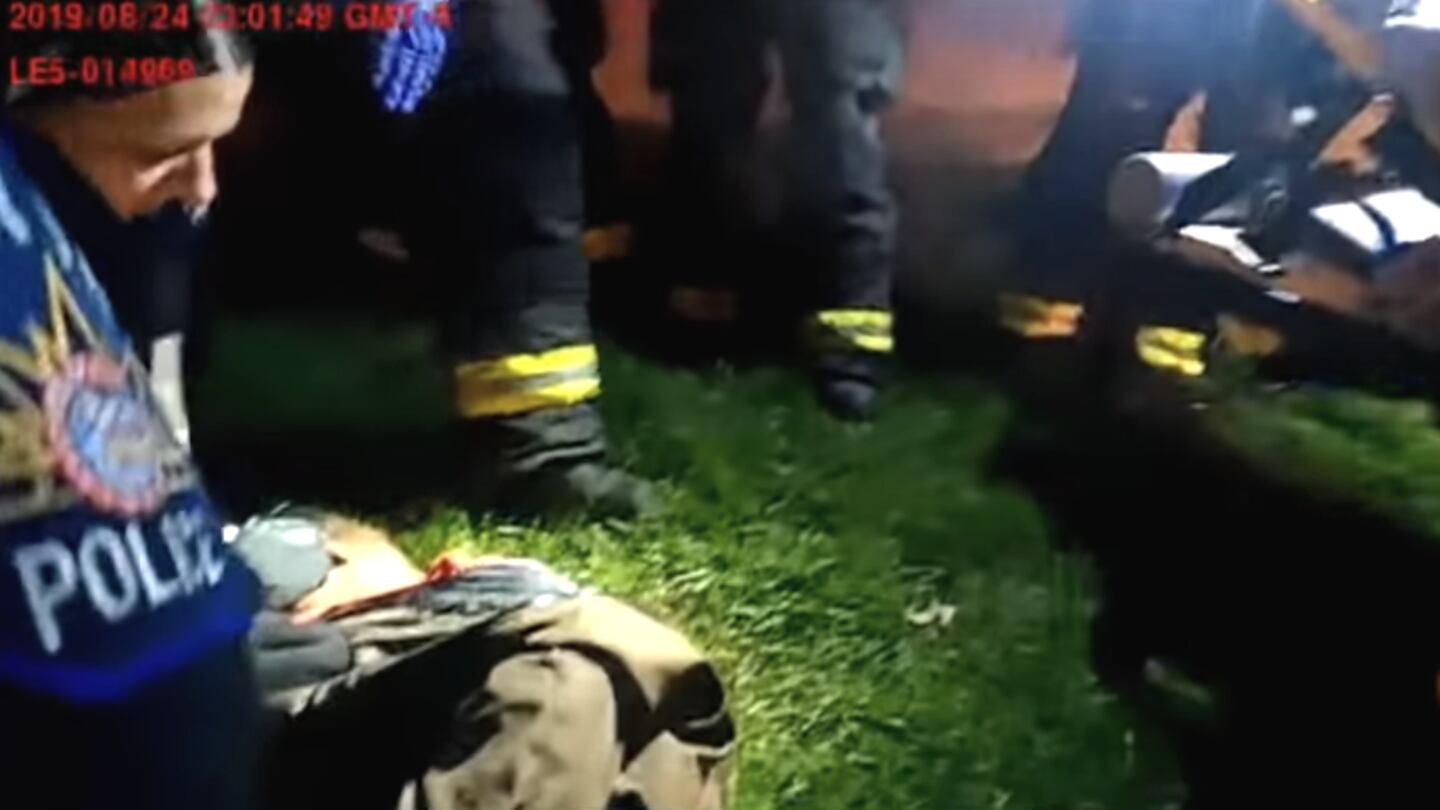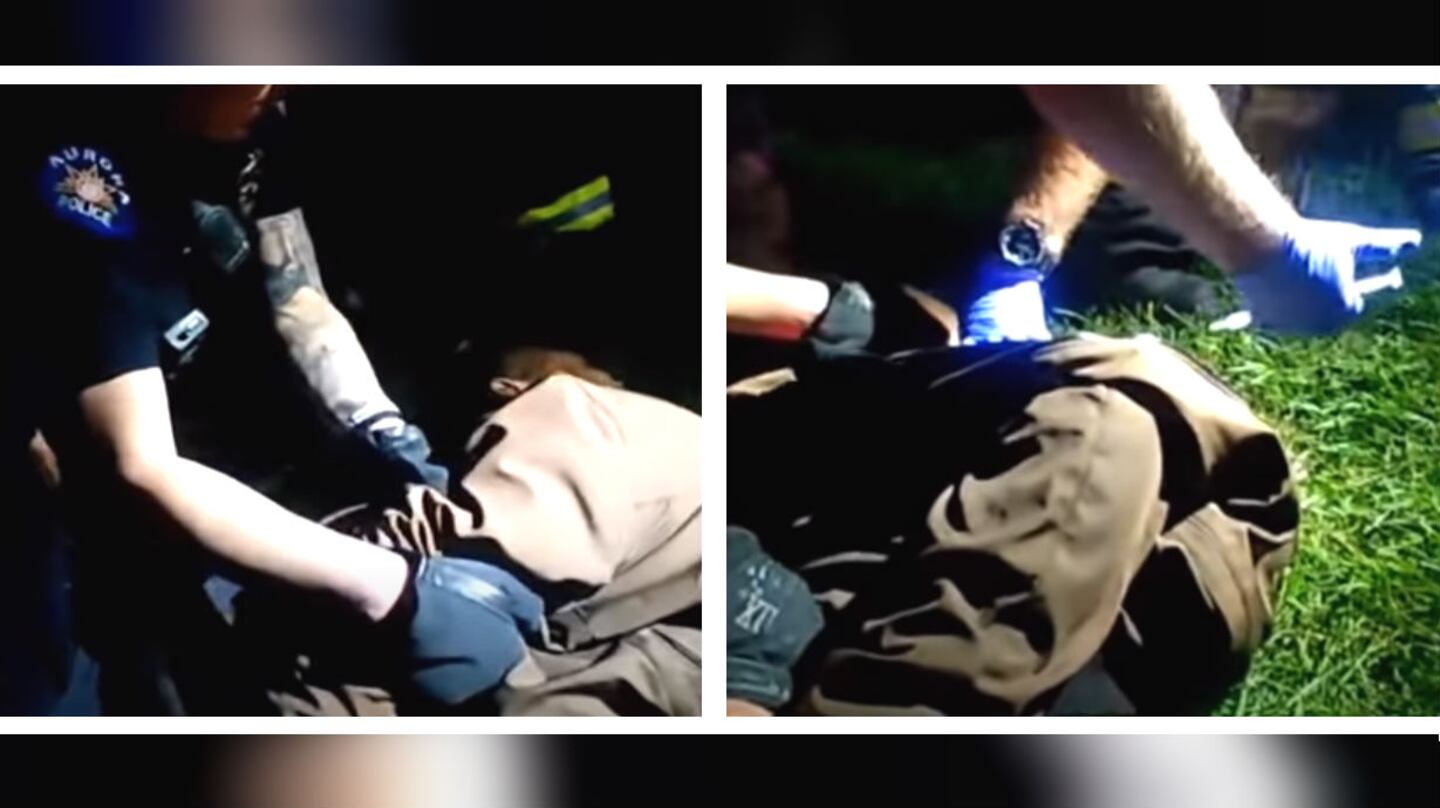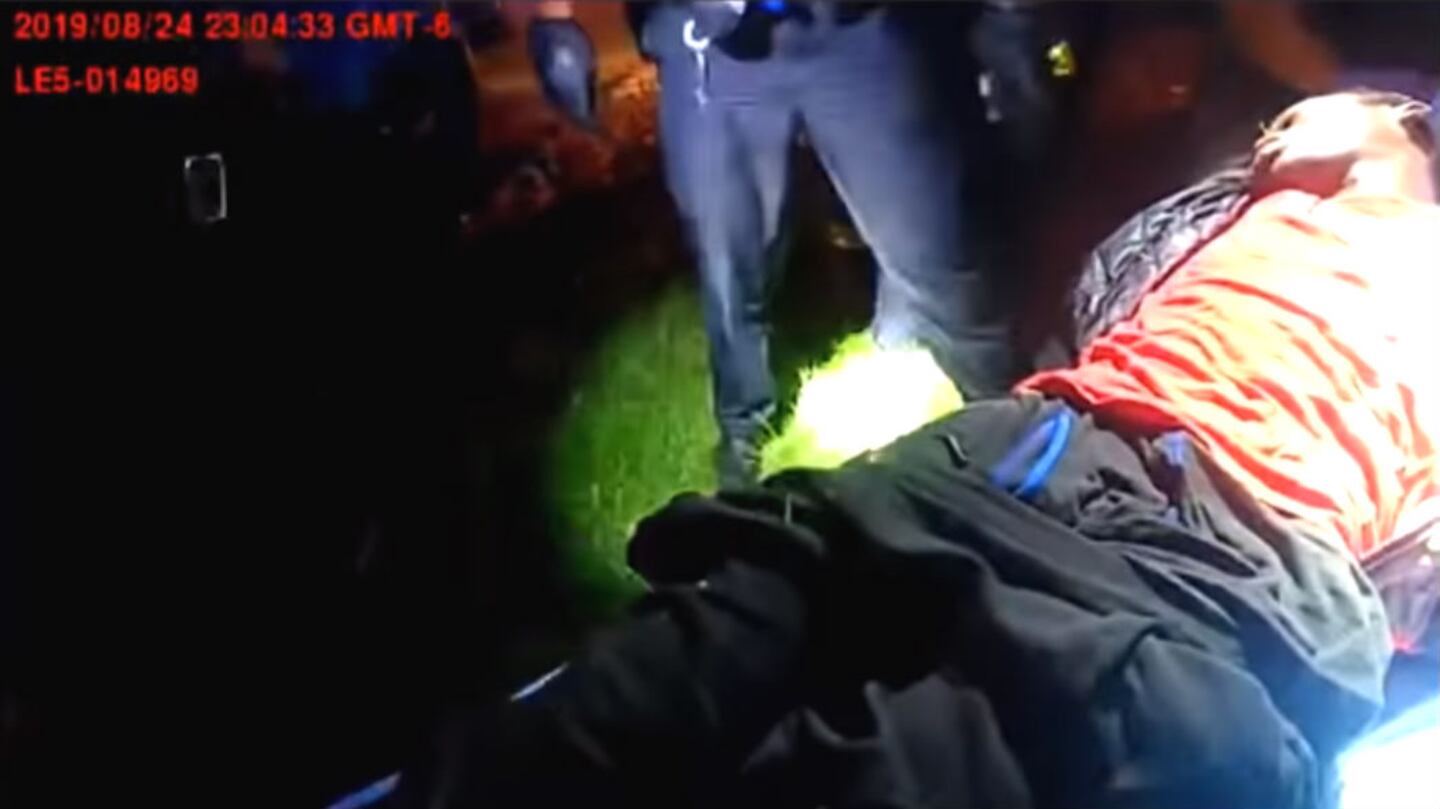AURORA, Colo. — The probe into the 2019 death of Elijah McClain in police custody has taken a new twist as Colorado’s attorney general opens a grand jury investigation into the case.
Colorado Gov. Jared Polis announced in July that he had ordered a new investigation into McClain’s death. His executive order appointed Attorney General Phil Weiser to “investigate and, if the facts support prosecution, criminally prosecute any individuals whose actions caused the death of Elijah McClain.”
A grand jury in Colorado will review the death of Elijah McClain, the 23-year-old Black man murdered by Aurora police in August 2019. The investigation comes as part of an independent investigation, following nationwide protests over the police killings of Black Americans. pic.twitter.com/Fpig9apXx3
— Grande Capo (@VoLinxx) January 9, 2021
Weiser, who has since led an independent probe into the unarmed McClain’s death, on Friday announced his decision to open a grand jury investigation.
“The grand jury is an investigative tool that has the power to compel testimony from witnesses and require production of documents and other relevant information that would otherwise be unavailable,” Weiser said in a statement. “Our investigation will be thorough, guided by the facts and law, and worthy of the public’s trust.”
The top prosecutor declined to comment further.
>> Related story: Colorado governor orders new probe of Black man’s 2019 death in police custody
McClain, 23, of Aurora, went to the store the night of Aug. 24, 2019, to get his cousin some iced tea, donning a faceless ski mask to ward off a chill brought on by his anemia, his family said.
Surveillance footage from the store shows McClain, wearing the ski mask, paying for his purchase. No one on the tape appears to show alarm, since McClain was known in the neighborhood.
As he walked home, however, a driver who spotted him called 911 to report a “sketchy” person walking on the sidewalk.
“He might be a good person or a bad person,” the man told police, according to audio of the call. The caller said the man didn’t appear to be armed and he was not in danger from him.
Less than an hour later, McClain was dying.
Listen to the 911 call below.
According to authorities and body camera footage, Aurora police officers put him in a carotid chokehold, rendering him unconscious at least briefly, and paramedics injected him with 500 milligrams of ketamine, a powerful tranquilizer, to calm him down.
The carotid hold, which has been banned by police departments across the country, applies pressure to a person’s neck and restricts blood flow to the brain.
McClain, a talented violinist who played music for cats at a local animal shelter, went into cardiac arrest in the ambulance minutes after the ketamine injection. Placed on life support, he died six days later.
No one has been charged with his death, though the three officers involved, Nathan Woodyard, Jason Rosenblatt and Randy Roedema, each served seven days of administrative leave in August 2019, Fox 31 in Denver reported.
As of last summer, they’d been placed on “non-enforcement” duties and restricted from interaction with the public.
This young man’s name is #ElijahMcClain, & animal welfare friends, he was one of us. He spent his lunch breaks at his local animal shelter playing music because he felt it was soothing to the animals. His family deserves an independent investigation. #ElijahMcClainWasMurdered pic.twitter.com/nFWVCg25m8
— Marc Peralta (@_MarcPeralta) June 26, 2020
The Adams County pathologist who conducted McClain’s autopsy ruled his cause of death was “undetermined” but said that contributing factors included “intense physical exertion and a narrow left coronary artery.” McClain also had a history of asthma.
“Elijah McClain should be alive today, and we owe it to his family to take this step and elevate the pursuit of justice in his name to a statewide concern,” Polis said in a statement last year.
McClain’s death was yet another flashpoint in the nationwide protests against police brutality that were sparked by the May 25 killing of George Floyd by Minneapolis police officers. Those four officers have been criminally charged in his death.
Like Floyd, some of McClain’s last words were, “I can’t breathe.” The phrase has become a rallying cry for demonstrators demanding changes in policing.
McClain’s mother, Sheneen McClain, believes police officers murdered her son and the city covered up the crime.
“They murdered him. They are bullies with badges,” she told CBS News.
Polis said as a father, his heart breaks for McClain’s family.
“All Coloradans should be safe walking home from the convenience store, or just being in their own neighborhoods listening to headphones,” Polis said. “Unfortunately, I know that is not how many people – especially young people of color – feel in our state today, because I’ve heard it from them directly. We need to do a better job and at a bare minimum, they deserve a thorough review of the case.”
‘I was just going home’
McClain, who worked as a massage therapist, was described by family and friends as a gentle soul who turned to vegetarianism to become healthier. He played his violin at the animal shelter because he believed the music could soothe the animals who were scared.
On the night of Aug. 24, he had gone to the store to buy his cousin’s drink and was walking home, listening to music on his earphones and dancing. His waving arms caught the attention of the man who called 911.
Within minutes, Aurora police Officer Nathan Woodyard found McClain walking near his home. In the body camera footage that exists, he can be seen carrying a bag from the convenience store.
“Hey, stop right there. Stop,” Woodyard tells him.
According to the footage and police reports, McClain says he had a right to go where he is going.
“I have a right to stop you because you’re being suspicious,” the officer tells him.
Officers Jason Rosenblatt and Randy Roedema arrive and help Woodyard detain McClain, who pleads with them to let go of him.
“I am an introvert. Please respect the boundaries that I am speaking,” he tells the officers.
The officers tell McClain to relax, at which point he tells them: “I’m going home. Leave me alone.”
“Relax, or I am going to have to change this situation,” one officer tells him.
Watch all of the body camera footage from multiple Aurora police officers below. Warning: The images may be disturbing to some viewers.
One officer asks him to cooperate, at which point McClain indicates that he is cooperating.
“You were starting to arrest me, and I was stopping my music to listen. Now let go of me,” McClain tells the officers.
McClain repeats that he is going home and for the officers to leave him alone.
“No, we are going to talk to you,” Roedema says.
The officers force McClain into the grass and then against a nearby brick wall before taking him to the ground. As they move him into the grass, McClain can be heard telling them he will “take (his) power back.”
At that point, Roedema tells another officer McClain made a grab for his weapon.
“He grabbed your gun, dude,” Roedema says.
The alleged gun grab is not seen on camera, though Roedema later told investigators that McClain reached for and touched the grip of Rosenblatt’s gun, which was holstered.
From that moment on, the cameras, which shake and rock as the officers struggle with McClain, show few of the details of what happened that night. Each of the officers later told authorities their body cameras fell off during the struggle.
“Give us some more units. We’re fighting him,” an officer is heard saying into his radio.
It was then that Rosenblatt attempted to put McClain in the carotid chokehold. Police officials said the hold was unsuccessful due to Rosenblatt’s position.
#SayHisName He was walking home and his life was taken away. Justice needs to be served for him too. #ElijahMcClain pic.twitter.com/B1gtDq2bl2
— PODEROSOS (@latinxpoderosos) June 26, 2020
Woodyard was able to put the chokehold on McClain, who briefly lost consciousness. According to authorities, they called in the Aurora Fire Department per department policy following a carotid hold.
When he regains consciousness, McClain can be heard in the video begging to be let up.
“I can’t breathe. Please stop,” a sobbing McClain says.
An officer tells him to stop fighting or he will be shocked with a Taser.
McClain’s next words are heartbreaking.
“I have my ID right here. My name is Elijah McClain. That’s my house. I was just going home,” McClain sobs. “I’m an introvert. I’m different. I’m just different, that’s all. That’s all I was doing. I’m so sorry.”
He continues to plead with the officers, who appear to ignore his words.
“I have no gun. I don’t do that stuff. I don’t do any fighting. Why are you attacking me? I don’t even kill flies! I don’t eat meat!”
He says he doesn’t judge people who do eat meat.
“Forgive me,” he says.
As the officers continue to talk amongst themselves, McClain appears to be pleading for his life.
“Forgive me. All I was trying to do was become better,” he pleads breathlessly. “I’ll do it. I’ll do it. I’ll do anything. Sacrifice my identity. I’ll do it.”
McClain vomits multiple times from the pressure on his chest and neck. He repeatedly apologizes as he struggles to breathe.
“You all are phenomenal. You are beautiful,” he says. “And I love you. Try to forgive me. I am a mood Gemini.”
The officers continue to hold him down on the ground as he cries out in pain.
“I’m so sorry. Ow, that really hurts,” McClain says. “You all are very strong.
“Teamwork makes the dream work,” he says as he trails off into sobs.
He appears to either vomit or heave in his struggle to breathe as some of the officers can be heard searching for handcuffs and body cameras lost during the struggle. He also appears to move in a way that causes the officer on top of him to tell him, “Stop.”
“I’m sorry. I wasn’t trying to do that. I just can’t breathe correctly because ….” he says.
He appears to heave again, either with breathlessness or the need to vomit.
At this point, one officer’s body camera is back in place. It shows another officer leaning over McClain, who is being held down on his side, and asking him what drugs he is on.
“What kind of drugs did you take tonight?” the officer asks. “We need to know, OK? We need to know what you were taking because we need to try to get you treated, OK?”
Read all of the Aurora Police Department and prosecutors’ findings related to Elijah McClaim’s death below.
McClain doesn’t appear to respond. He is no longer fighting the officers, though his heavy breathing is apparent.
“Gotta throw up, dude?” one officer asks.
“Yeah,” McClain says weakly.
“Throw up right there, OK. Don’t throw up on me, though,” an officer tells him.
The officer holding McClain down lifts him slightly so he can vomit on the grass.
“Get it out, dude,” an officer says.
‘Nothing really criminal’
As the officers await fire paramedics, the officer on top of McClain explains to a newcomer the call dispatchers received. He states that McClain tried to grab an officer’s gun while they were trying to talk to him.
McClain continues to vomit as he lies on the ground. The officer holding him tells him to stay on his side.
“Don’t get up, dude. It’s not going to be good for you, I’m telling you right now,” the officer says.
Another officer standing over McClain threatens him with a K-9 officer.
“If you keep messing around, I’m going to bring my dog (unintelligible) and let my dog bite you,” the officer says. “Keep messing around.”
McClain appears to move around again because the officers can be heard telling him to “chill out” and relax.
“You already lost this one,” one officer says. “Just relax.”
At that point in the video, firefighters appear at the scene. McClain begins to move around again, at which point an officer tells him to stop moving.
“You’ve already been told several times to stop,” the officer demands.
“I can’t fix myself,” McClain responds, in obvious pain, as he rolls over from his left side to his right.
After he rolls over, an officer finds his earbuds in the grass where he had been laying. In the background, another officer can be heard giving someone else a phone update on what took place.
He states that they got a “suspicious person call” and that McClain had a ski mask on and was “acting kinda weird.”
“Nothing really criminal, but officers go to make contact with him and he starts acting crazy,” the officer is heard saying.
As he gives the update, officers are again struggling with McClain.
“Stop, please,” McClain cries.
“Well stop fighting us,” an officer says.
“I’m trying,” McClain responds.
As they continue to hold McClain on the ground, ketamine comes up for the first time.
“So when the ambulance gets here, we’re going to go ahead and give him some ketamine,” a firefighter medic says. Aurora police officials identified the person who ordered the ketamine as fire medic Jeremy Cooper.
“Sounds good, dude,” an officer responds. “Perfect, dude. Perfect.”
It again appears in the footage that the officers assume McClain is on drugs.
“Whatever he’s on, he has incredible strength,” an officer is heard saying.
“Yeah. Crazy strength,” another officer agrees.
McClain’s autopsy report indicates he had marijuana and ketamine, but no other drugs, in his system when he was admitted to the hospital.
>> Read more true crime stories
About five minutes after the ketamine is first mentioned, a medic gives McClain a dose of the drug.
Eight minutes later, the officers are told by the medics that McClain, who by that time was in the back of an ambulance, no longer had a pulse.
“Are you serious?” an officer asks.
Police reports state that Cooper ordered 500 milligrams of ketamine because he estimated McClain weighing 100 kilograms, or 220 pounds.
McClain weighed 140 pounds, according to his autopsy report.
Documentation provided by the Aurora Fire Department gave the standard dosage of the drug as 5 milligrams per kilogram. At McClain’s weight, his dosage would have been 320 milligrams.
McClain’s autopsy report states that the ketamine in McClain’s system was “at a therapeutic level, but an idiosyncratic drug reaction (unexpected reaction to a drug even at a therapeutic level) cannot be excluded.”
Read Elijah McClain’s autopsy report below.
The report states that McClain suffered a second cardiac arrest early the morning of Aug. 25. Two days later, he was declared brain dead, which was confirmed upon autopsy.
His autopsy found bleeding in the deep strap muscles over his larynx, along with bleeding in the area where hospital staff had placed a catheter. He also had abrasions on his face and head, as well as on his back, chest and shoulder.
The pathologist who conducted the autopsy, Dr. Stephen Cina, pointed out that a carotid control hold was applied during McClain’s encounter with police but wrote that he couldn’t determine if the hold contributed to his death.
“The decedent was violently struggling with officers who were attempting to restrain him,” Cina wrote. “Most likely, the decedent’s physical exertion contributed to death.
“It is unclear if the officers’ actions contributed as well.”
Cox Media Group

